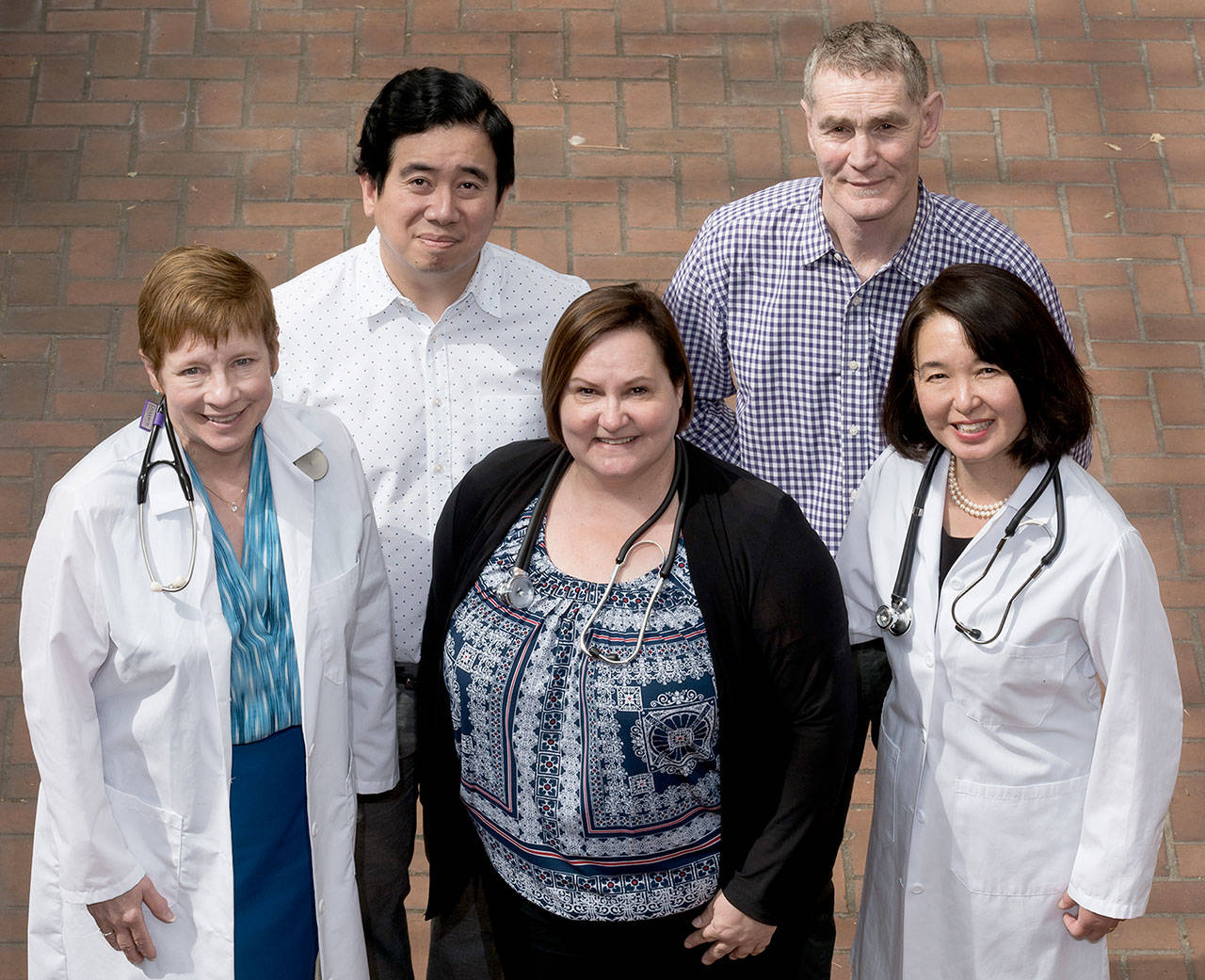SEATTLE — It’s not the kind of journey you want to go on. It’s called a diagnostic odyssey and it can involve multiple doctors, multiple tests and, sometimes, no answers.
By the time Dr. Gail Jarvik, a genetic specialist at the University of Washington, sees a patient in the midst of a diagnostic odyssey, “they’ve visited five or six medical centers and had a lot of imaging done, had a lot of tests done, without a result,” said Jarvik, head of the Division of Medical Genetics at the UW School of Medicine.
Jarvik and her counterpart, Dr. Katrina Dipple, director of medical genetics at Seattle Children’s Hospital, hope a new partnership will help shorten that odyssey.
This fall, the UW School of Medicine and Children’s received a federal grant to establish a regional clinic with the aim of diagnosing rare and puzzling disorders.
Jarvik and Dipple have been selected to head the no-fee clinic. It will serve patients in Washington, Alaska, Montana, Idaho and Oregon.
The clinic is the first of its kind in the Pacific Northwest and will become part of the national Undiagnosed Diseases Network, a research program funded by the National Institutes of Health.
A four-year, $100 million NIH grant will fund five new clinics in Seattle, Utah, Missouri, Pennsylvania and Florida, and increase the network from seven to 12 sites.
Made up of research and medical centers, the program was created in 2015 by NIH to assist patients with difficult-to-classify diseases.
Since then, it has solved more than 200 cases, NIH said.
Patients must be referred by a doctor. Although they can apply themselves online, the application must include a doctor’s referral.
Those who qualify for the clinic’s services will have travel, lodging, meals and tests paid for.
“I would encourage families to apply, especially families in rural area,” Dipple said.
“Our goal is to give them a diagnosis and then help their local provider continue to take care of them,” Dipple said.
The clinic expects to see a minimum of 15 adults and 15 children each year.
“After that, it depends on how much it costs us,” Jarvik said.
The clinic’s approach isn’t new — “it’s similar to what people have been doing for patients with rare diseases for a long time,” Dipple said.
Becoming part of the network, however, “brings a lot of minds and resources onto the same problems,” Jarvik said.
Sometimes the culprit can be a known disorder that creates unusual symptoms in a patient, Jarvik said.
“Not everything looks like it looks in medical school,” Jarvik said.
It’s no coincidence that Jarvik and Dipple are both genetic specialists.
“It turns out that the underlying cause, when we can find it, is genetic in really most cases,” Jarvik said.
Even if the clinic can’t provide a definitive answer, “people feel like they’ve gotten the most comprehensive work-up possible,” Jarvik said.
Plus, it can also offer patients an introduction to a social support system — other families struggling with the same or similar medical issues, she said.
A diagnosis can not only offer relief to patients but families, as well.
For example, parents who have a child with an undiagnosed medical condition can wind up blaming themselves.
“They start to wonder, ‘Was it something I did, or something I ate while I was pregnant?’” Jarvik said.
“When they finally get a diagnosis … it’s just so powerful for them and us,” Dipple said.
The clinic expects to begin seeing patients early in 2019.
For more information or the apply go to undiagnosed.hms.harvard.edu/apply.
Janice Podsada; jpodsada@heraldnet.com; 425-339-3097; Twitter: JanicePods
Talk to us
> Give us your news tips.
> Send us a letter to the editor.
> More Herald contact information.

























